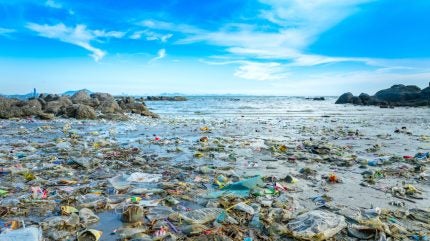
WWF International has urged governments to commit to a strong and effective legally binding treaty for global plastic pollution, INC-5, as the fifth and final negotiations round approaches.
On 24 November, a day before INC-5 begins, WWF will host an event to demonstrate the feasibility of a strong global plastic pollution treaty. The event will showcase solutions from various sectors and include the delivery of a petition signed by millions, advocating for a legally binding treaty.
The environmental group has outlined several key actions for inclusion in the treaty such as banning and phasing out harmful plastics, mandating product design for reusability and recyclability, setting clear funding commitments, and creating mechanisms to strengthen the treaty over time.
These steps are seen as critical to reducing the demand for virgin plastic production and limiting global warming to 1.5°C.
The environmental organisation stresses the urgency of including mandatory measures to combat plastic pollution, warning that failure to do so could severely impact global carbon emission budgets and efforts to limit climate change.
WWF International director general Kirsten Schuijt said: “To protect current and future generations from a world overwhelmed by plastic pollution and the unequal burden it places on the most vulnerable communities, we need binding global rules.
“Negotiators have the backing of not only scientific evidence, but also a majority of governments, citizens and businesses that a global treaty with legally binding obligations, and not voluntary guidelines, is the only way to end the global plastic pollution crisis.
“Negotiators must prioritise the most urgent and essential measures so we can get to the heart of the issue – what a strong treaty should include – faster and more impactfully.”
WWF highlights that most governments have expressed support for such measures. The challenge now is to ensure these commitments translate into a robust treaty.
The organisation cautions against any dilution of these core measures and emphasises the need for legally binding bans and design requirements to avoid reverting to ineffective voluntary initiatives.
Child activists Hannah Kim and Jeah Han from the Republic of Korea, along with poet Nikita Gill, will present the petition to INC-5 Chair Luis Vayas Valdivieso.
Kim and Han have been instrumental in a landmark climate lawsuit in Korea, where their efforts have led to a ruling requiring the Korean Government to set binding greenhouse gas reduction targets.
WWF Global Plastics Policy lead and INC-5’s head of delegation Eirik Lindebjerg said: “The majority of governments have been calling for the right measures, and at INC-5, they need to turn these words into action by cementing such measures in the treaty text unambiguously. There can be no room for alternative interpretations, borne out of certain governments’ economic self-interests, to take precedence over the health and safety of the world.
“Those that want a strong treaty must therefore push ahead with one, even if this means not all governments will ratify it, or be ready to take the decision to another forum. A treaty with binding measures supported by the majority of governments will be far more effective than a voluntary-based treaty supported by all governments.”



